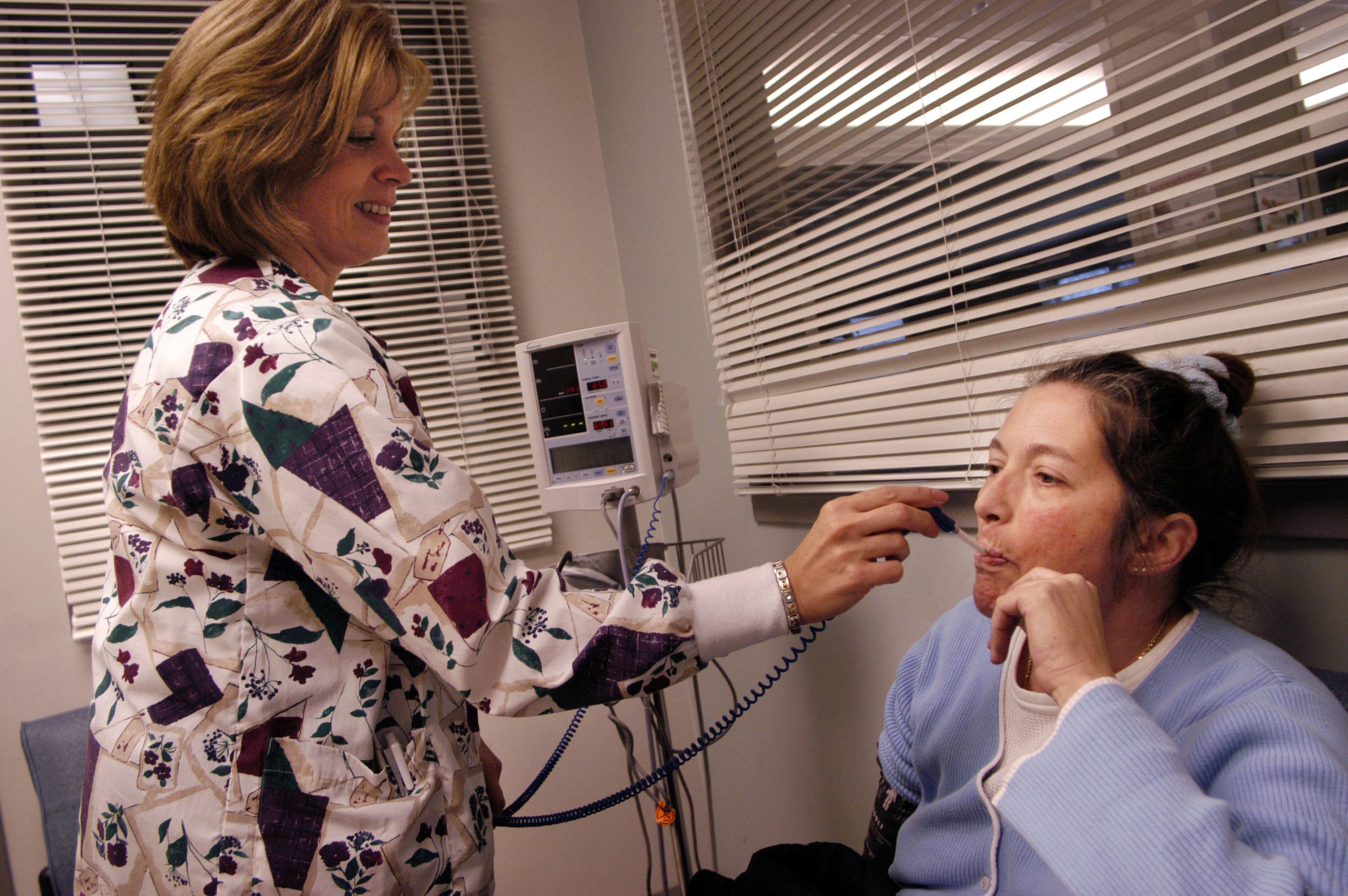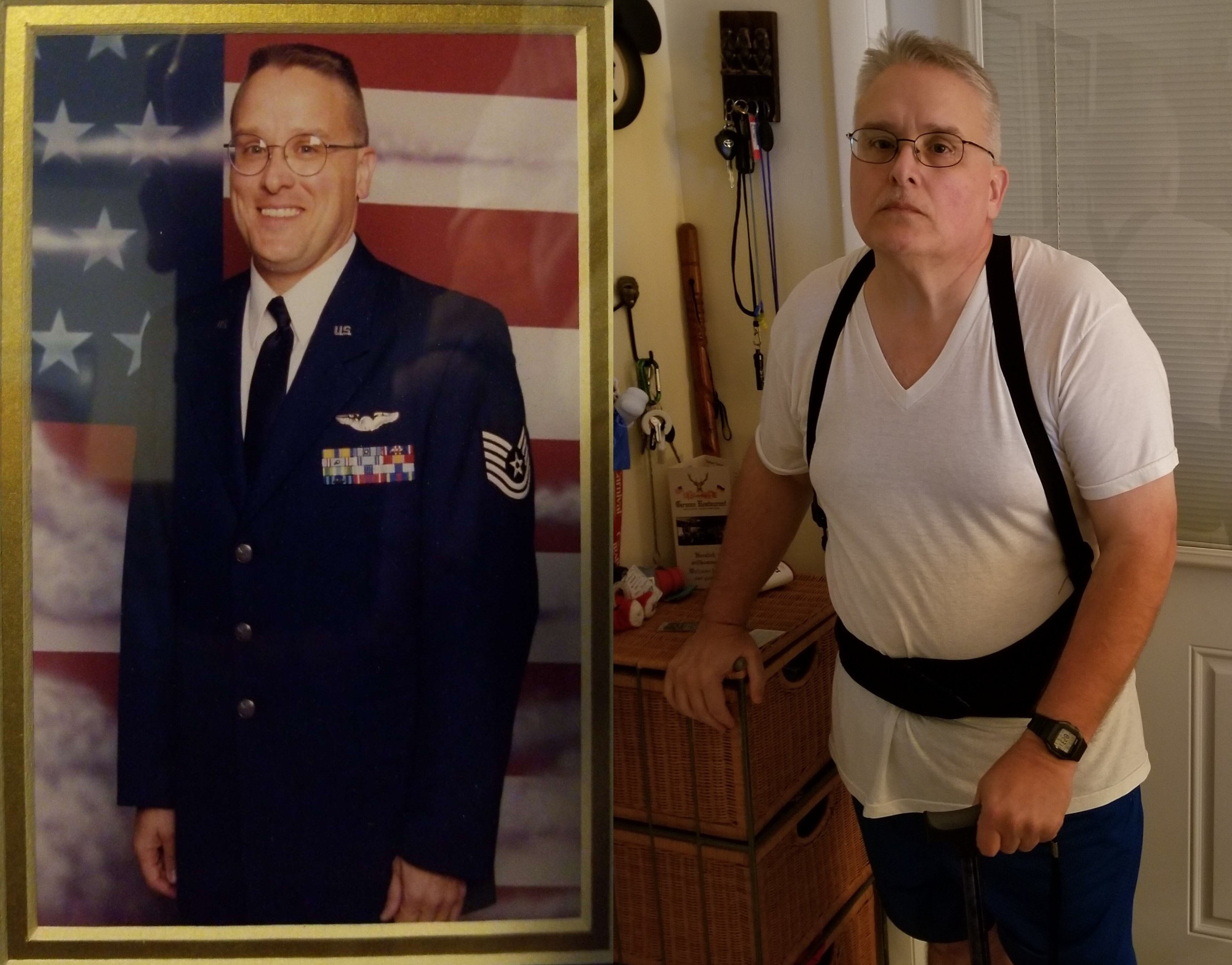First, Tricare approved the surgery that a retired and disabled Air Force master sergeant needed to correct a debilitating back disease and reimbursed his costs.
Then, the Defense Department’s health insurance program said they had made a mistake — and sent him a bill for nearly $46,000.
Retired Master Sgt. Robin Gift, 56, has now been fighting Tricare on this for roughly seven years, and he’s almost out of moves — and money. Tricare at one point agreed to cut the $45,956 debt in half, to $22,978, his attorney Stephen Jewell said — but he would have to declare the forgiven debt as income and pay taxes on it.
Gift now lives in Seminole, Florida, on his disability payments from his time in the Air Force, with a roommate to make ends meet. If Tricare forces him to repay this debt, Jewell said, it will make his already-dire financial situation even worse.
Defense Health Agency spokesman Kevin Dwyer said the agency could not comment specifically on Gift’s case.
“Tricare is committed to providing safe, quality, accessible and patient-centered care for those in our charge and their families,” Dwyer said in an email Tuesday. “Though we do not discuss specifics regarding any particular case, Tricare continually reviews claims to ensure they have been properly paid. Tricare works with patients to secure repayment.”
RELATED

Gift medically retired in 2006, after serving more than 22 years in passenger service operations for aircraft — hauling cargo and baggage, as well as cooking and serving food and working as a flight attendant.

He pulled a back muscle during physical training one day, sought treatment, and in 2002 was diagnosed with a pre-degenerative disc disease in his back, Jewell said. In 2003, he was diagnosed with full-blown degenerative disc disease, and the military found he had become injured as a result of his job.
“It was kind of a wear-and-tear type of thing,” Jewell said of Gift’s injury. “He’s 100 percent disabled, he pretty much can’t work. He’s really in some rough shape.”
In 2009, he underwent a lumbar disc replacement surgery in Germany, the cost of which he paid up front. Tricare approved the surgery and in early 2010, reimbursed him for $45,956.
But by 2012, Tricare’s opinion had changed, according to a release from Jewell’s law firm, Tully Rinckey. Tricare told Gift that it had made a mistake; the procedure was not covered and he would have to repay the full amount.
Gift refused to pay, Jewell said, and asked them to reconsider. He had a letter from his doctor at the time of the surgery, which said that without the procedure, he might not have been able to walk within a year.
“When he started [fighting] this back in 2012, he thought cooler heads would prevail,” Jewell said.
Gift asked for help from his representatives, including Sen. Marco Rubio, R-Florida. Jewell said congressional assistance helped convince Tricare to offer some relief, such as by offering to cut his debt in half.
But Jewell said Gift doesn’t think he should have to pay, since Tricare agreed to cover the costs nearly a decade ago. What’s more, Jewell said, Tricare now officially covers the surgery Gift received, and has since at least 2017.
Gift is almost out of moves, Jewell said. He’s exhausted his appellant options and doesn’t have any more money to further pursue a lawsuit. He’s hoping someone in Congress steps in to relieve him of the financial burden. If he has to pay, Jewell said, “he does not know what will happen to him.”
Stephen Losey is the air warfare reporter for Defense News. He previously covered leadership and personnel issues at Air Force Times, and the Pentagon, special operations and air warfare at Military.com. He has traveled to the Middle East to cover U.S. Air Force operations.





